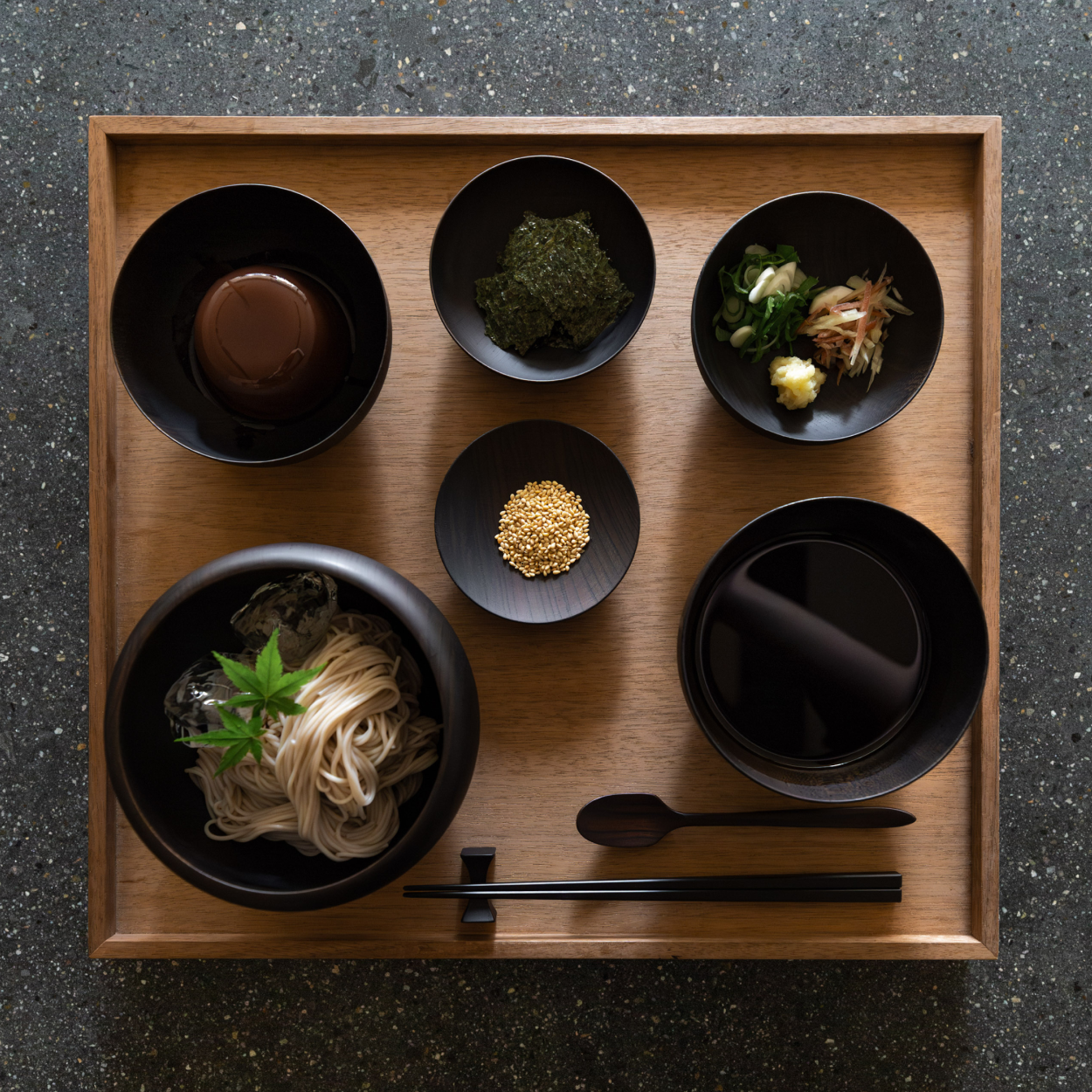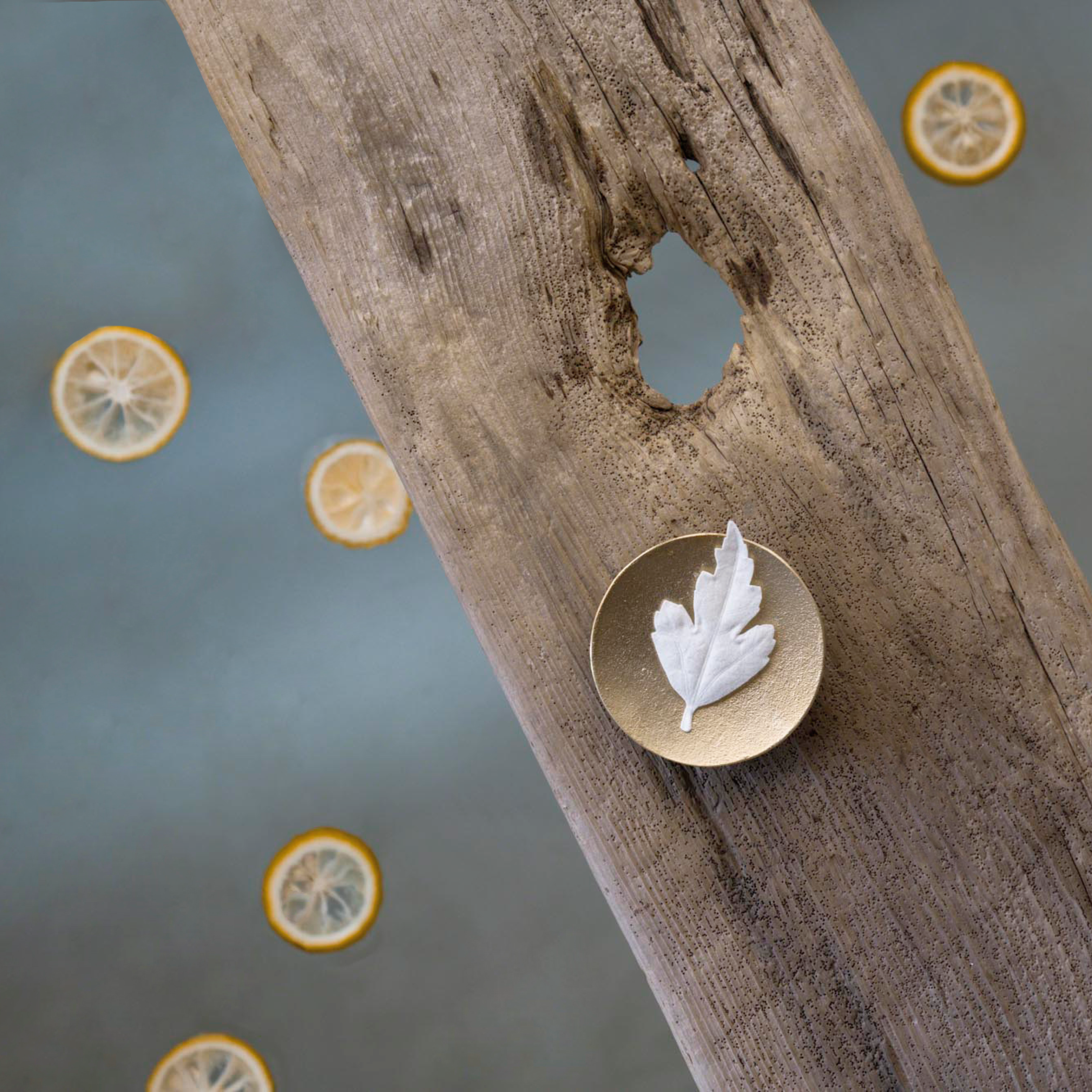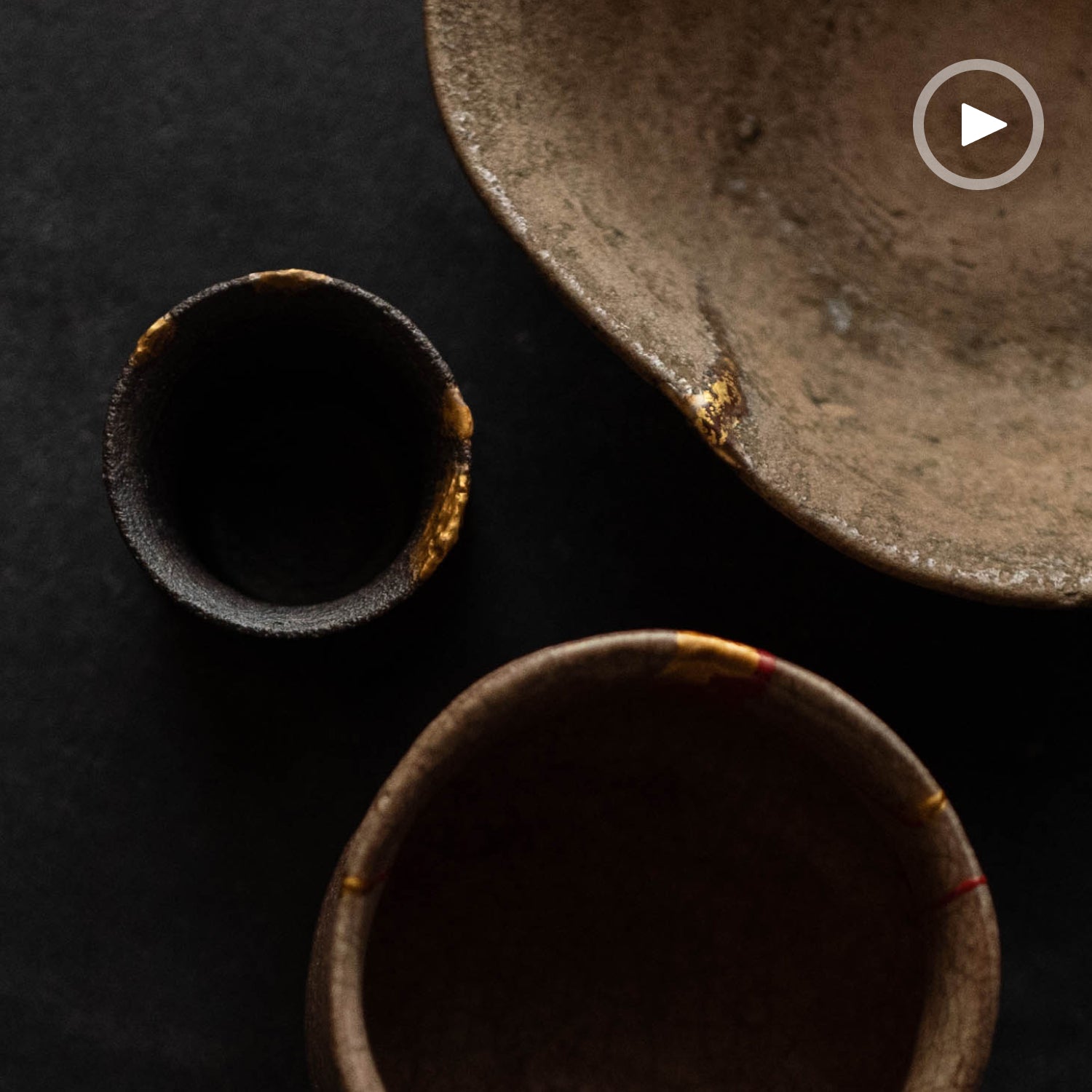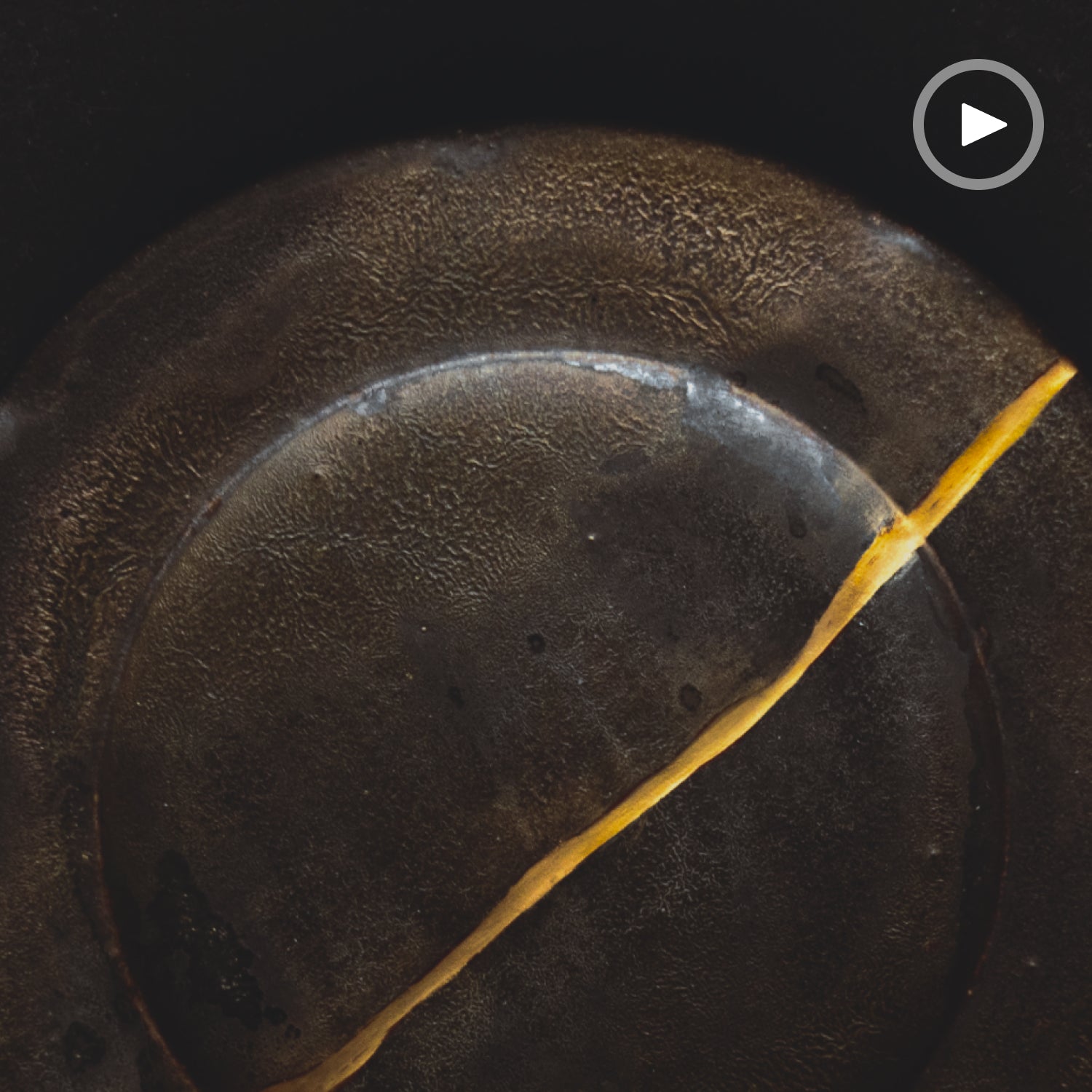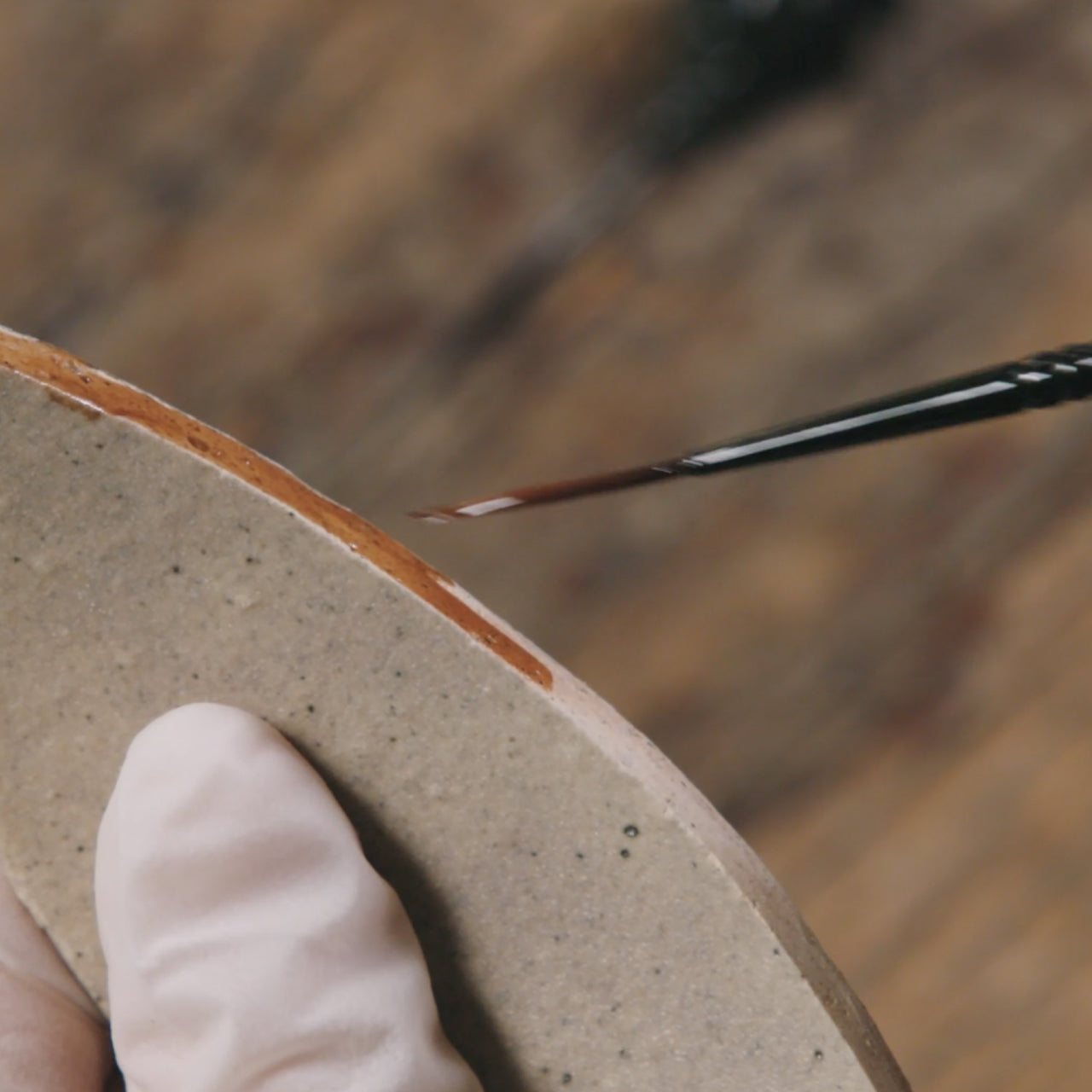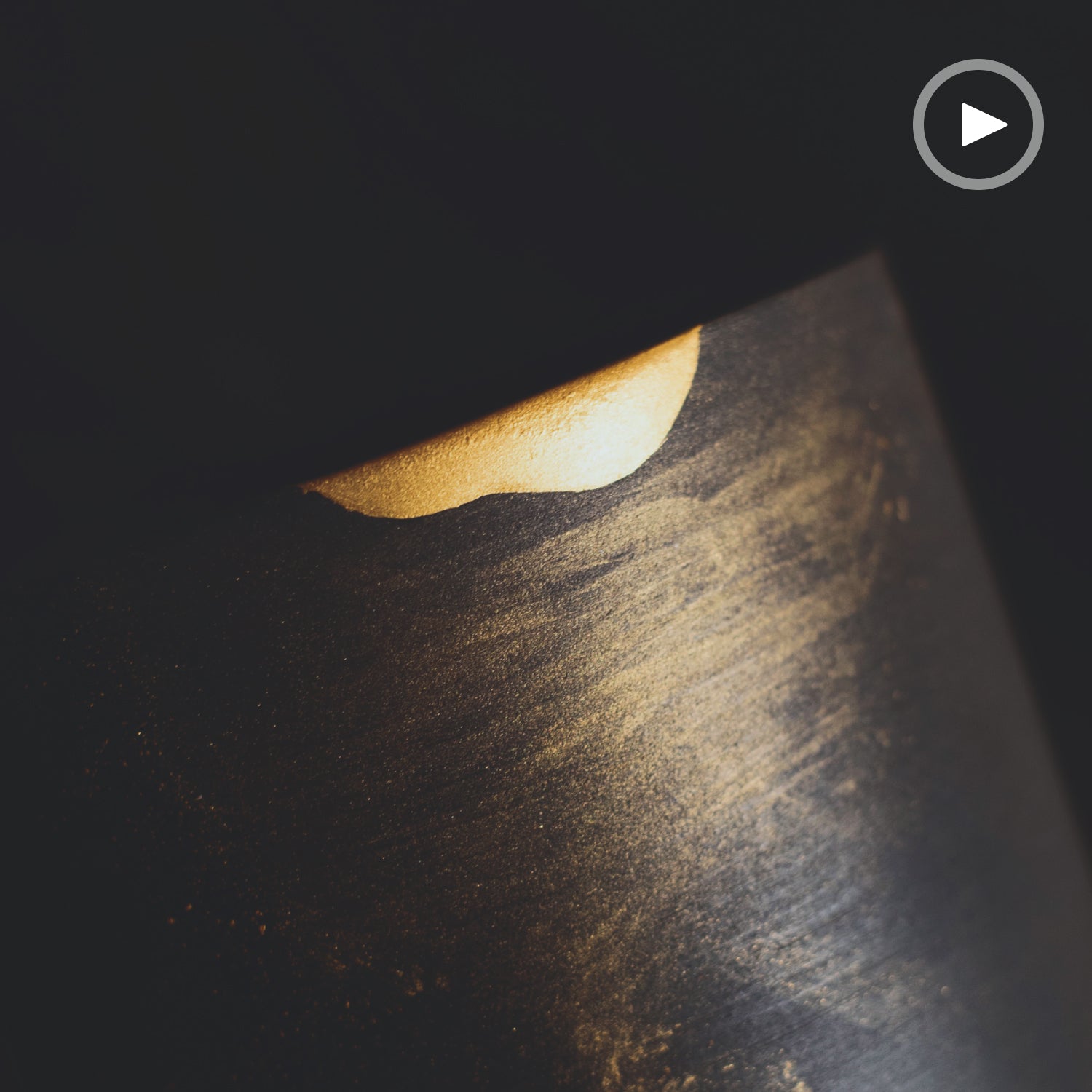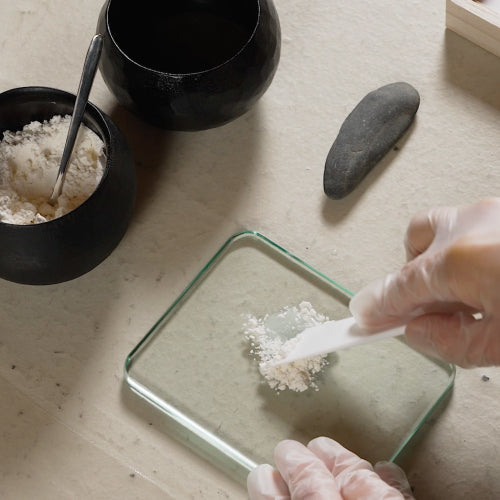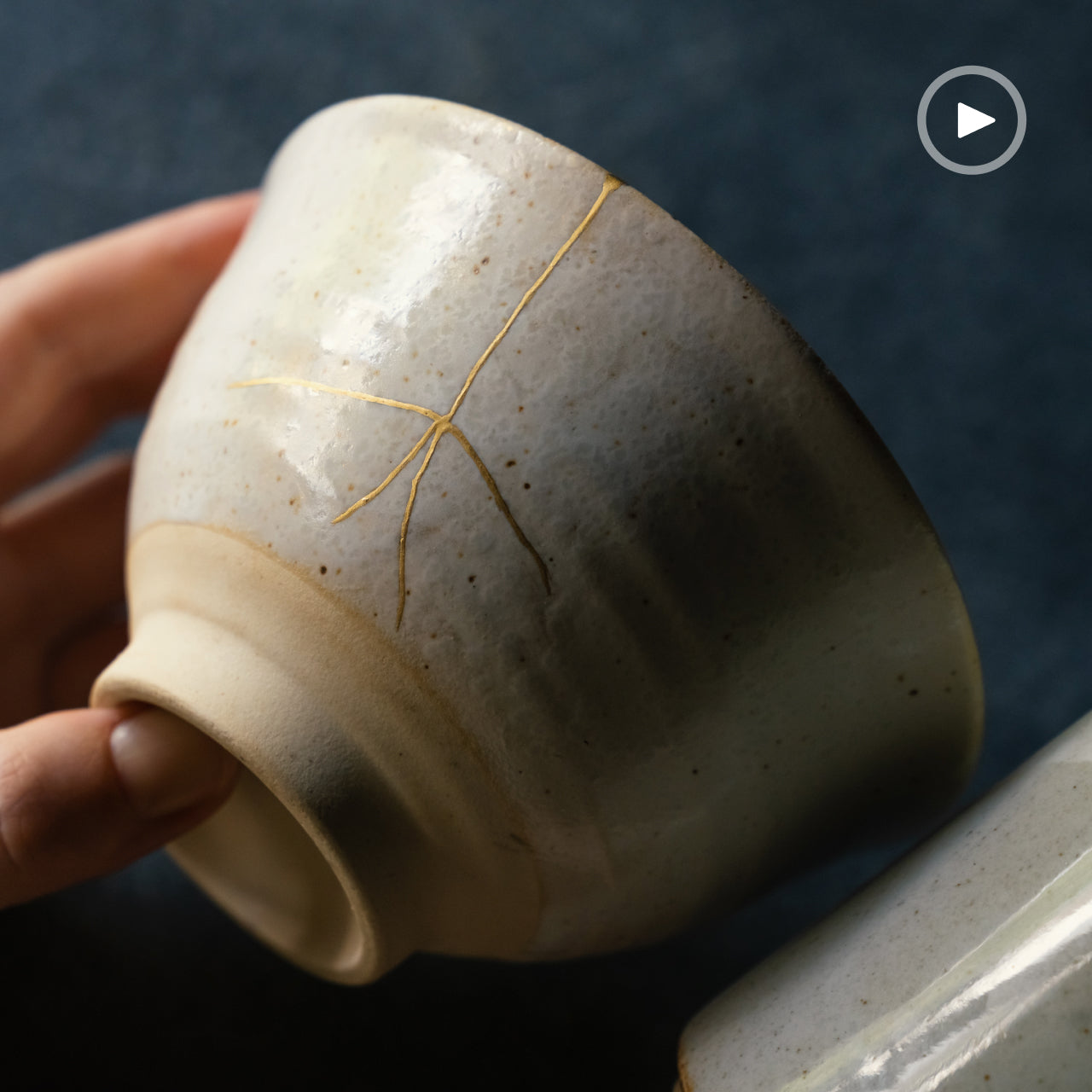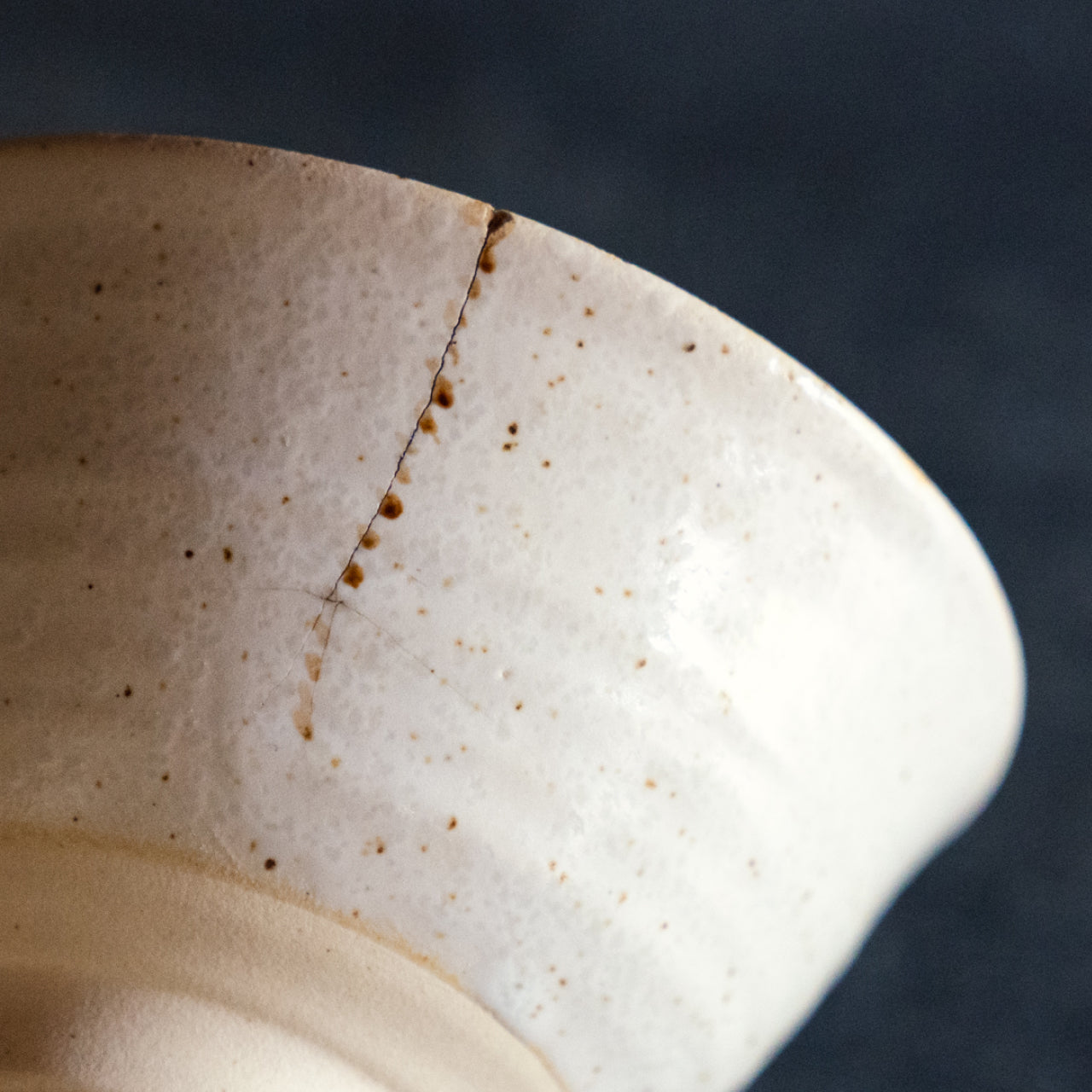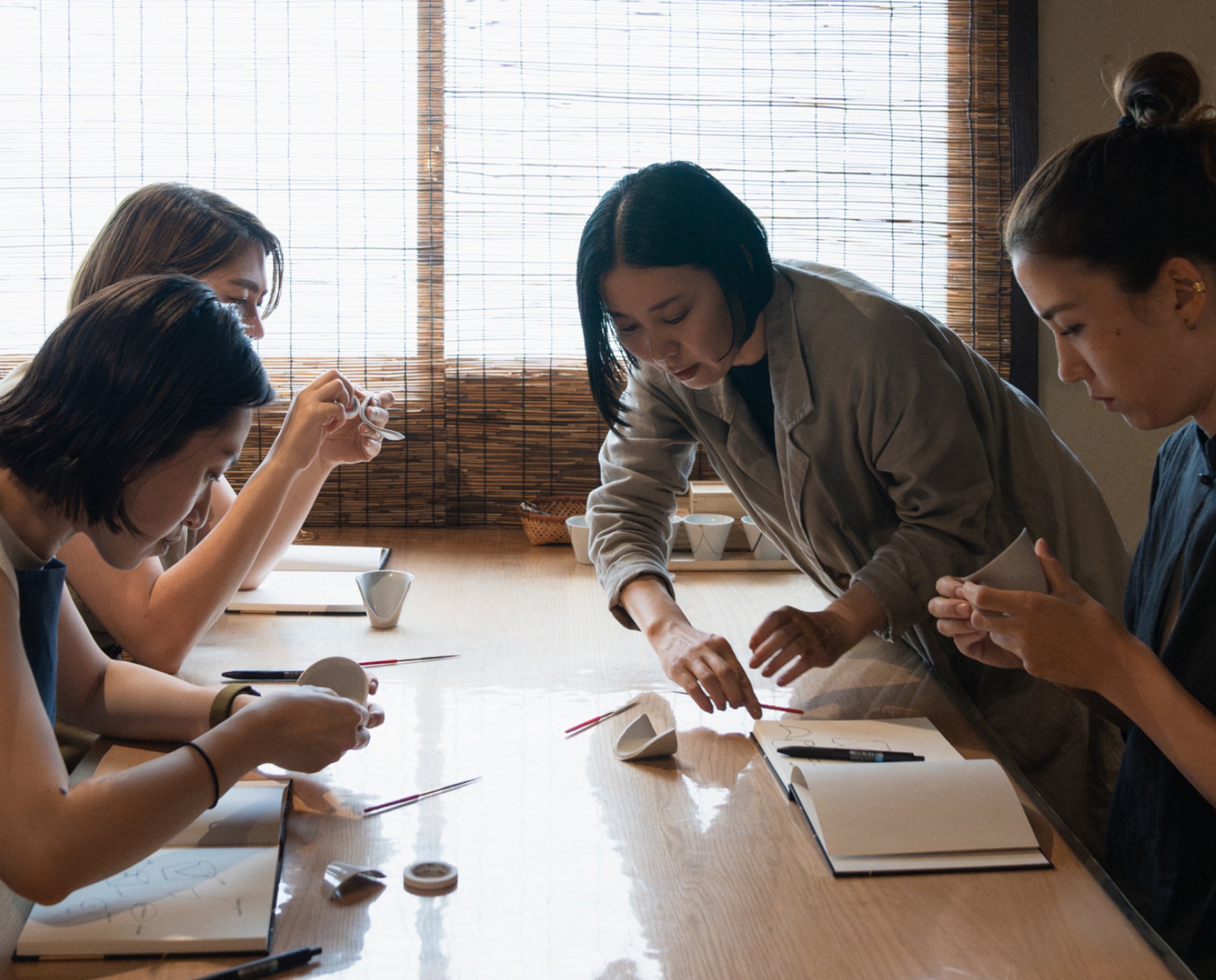
KINTSUGI IN KYOTO
Kintsugi gold joinery, is the Japanese art of repairing chipped, cracked, and broken, mostly ceramic and porcelain tableware, using only 100% natural materials including urushi lacquer and finishing with 24K gold powder. While the intention of Western styles of repair are to mimic the original state and make the repaired item look as though it was never damaged, kintsugi highlights the breakages and celebrates the unique story of the wares that make our house a home.
Join us over tea and sweets and we will dive into the historical, cultural and environmental context behind kintsugi repair.
Self-paced classes
Experience Japanese traditional crafts from the comfort of your home with our master classes that come with each of our DIY Kits.
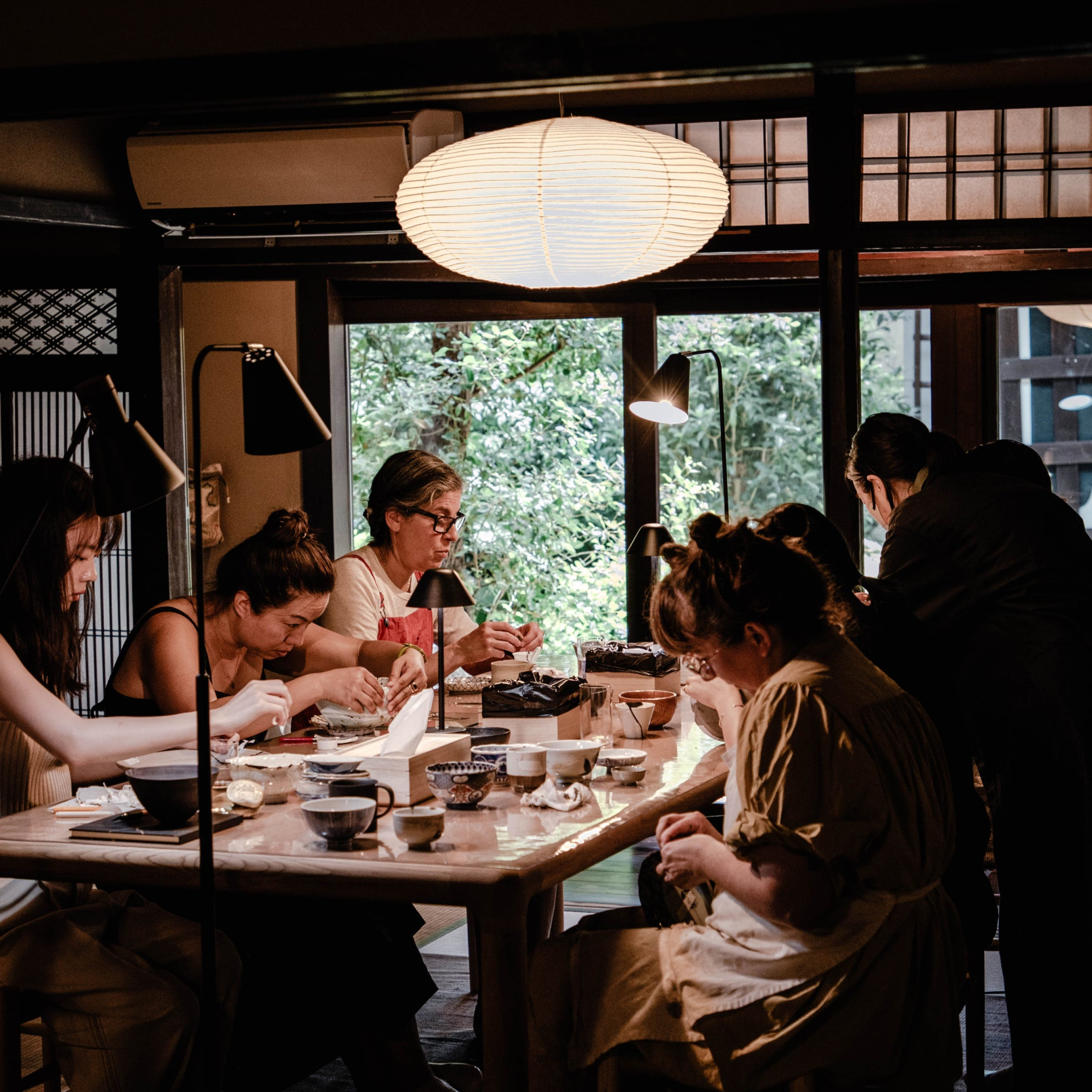
Become a Kintsugi Apprentice
POJ Studio’s two-month intensive program. Study to practice and share the craft of kintsugi repair with the world, through our 150-hour apprenticeship in Kyoto.
As a graduate, you will become create a strong foundation as an educator and ambassador to foster the kintsugi practice in your community. The Kintsugi Apprentice Program ensures that you are armed with the logic, philosophy, traditional tools, natural materials, and historical and cultural context that are at the heart of the authentic Japanese tableware restoration technique.
Kintsugi in depth
Kintsugi is part of a rich ecosystem, Urushi lacquer being at its core. Learn about its many facets with our blog.
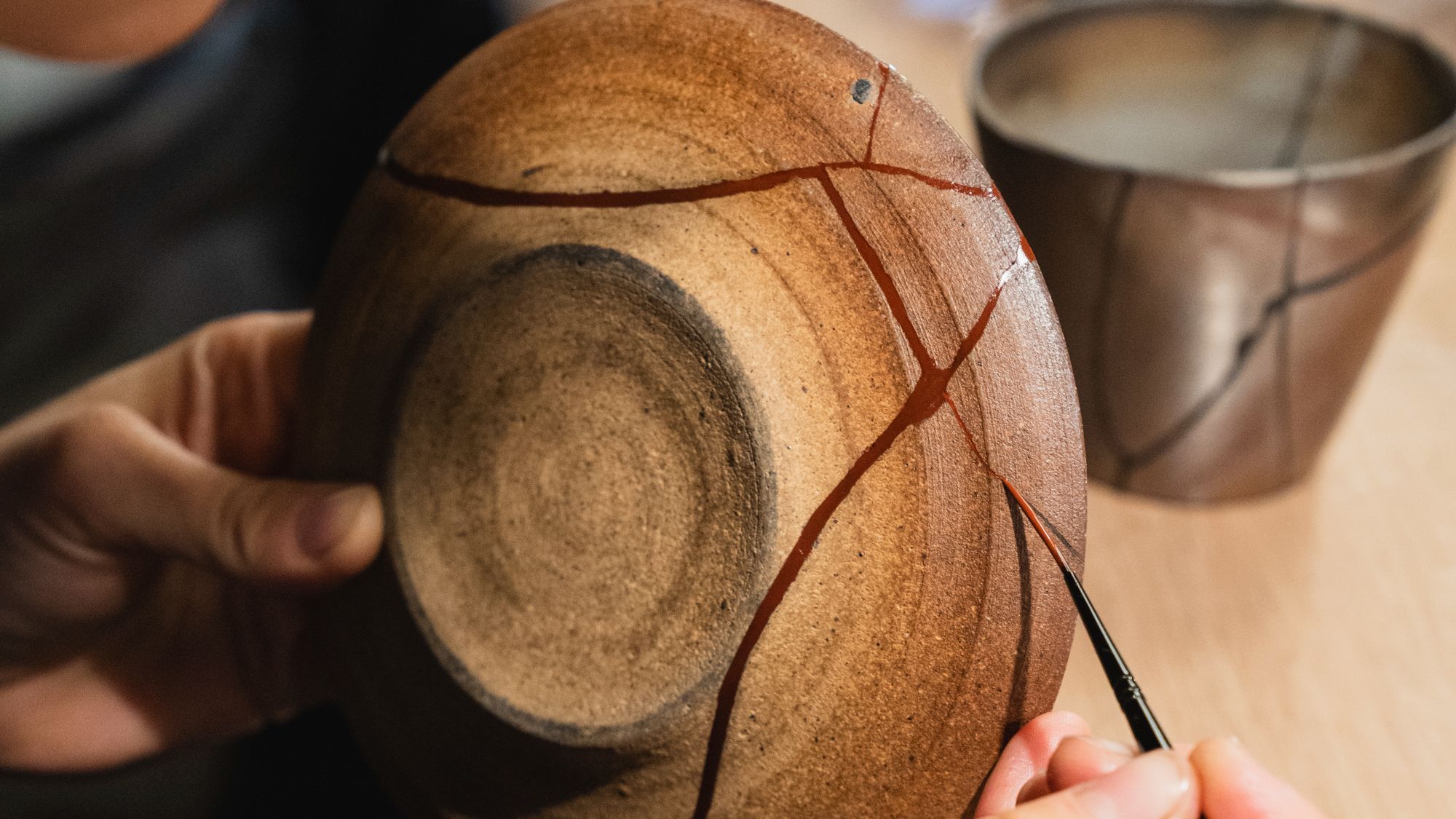
How to mend breaks: red and black urushi (part 3 of 3)
Once mugi urushi has been used to glue the broken fragments together, and sabi urushi has been used to fill the nooks and crevasses, phase 3 of the repair process is applying red and black urushi t...
Read more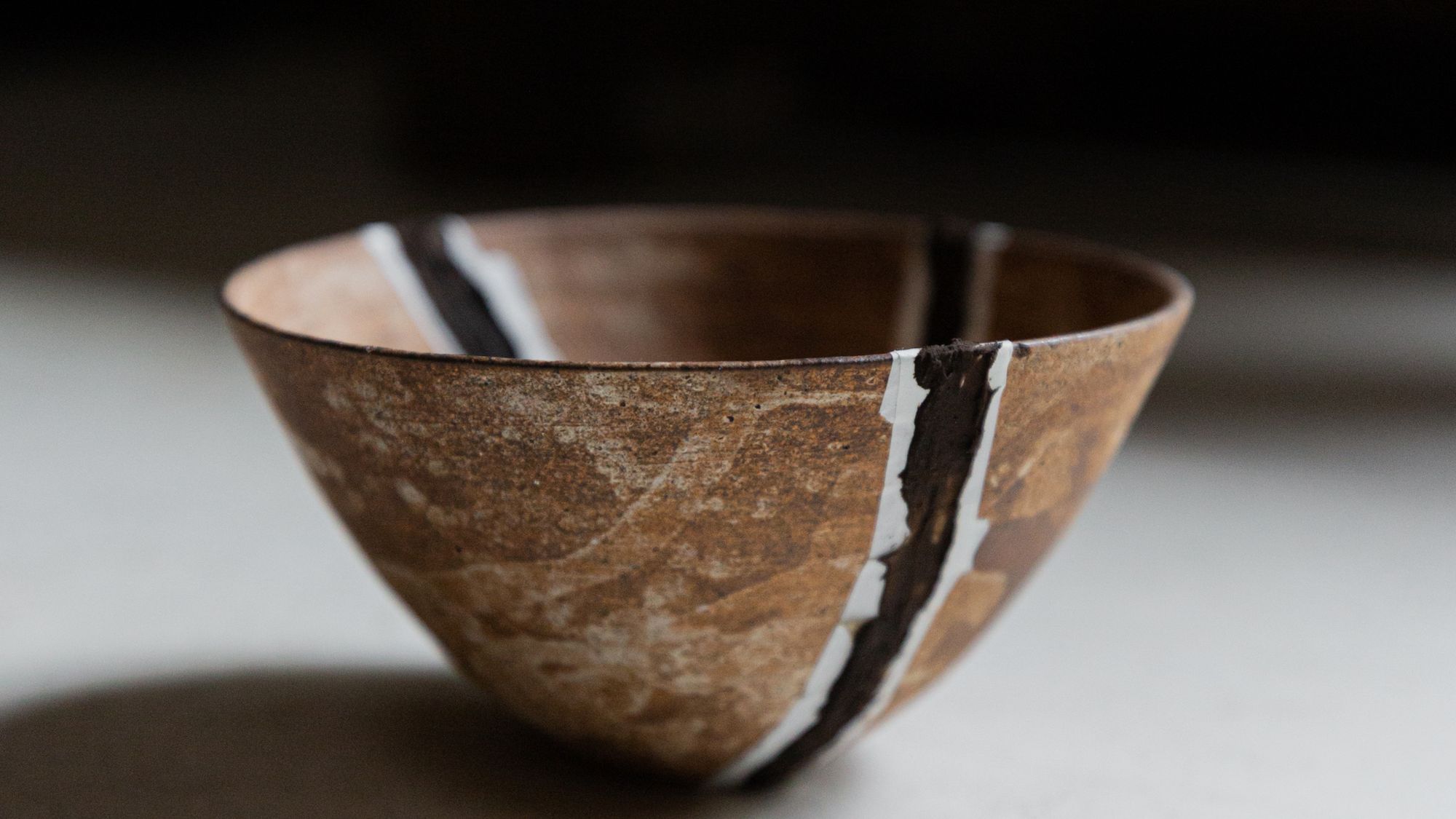
How to mend breaks: sabi urushi (part 2 of 3)
Once mugi urushi has been used to ‘’glue’’ broken fragments together, part 2 of the repair process is making and applying sabi urushi.
Read more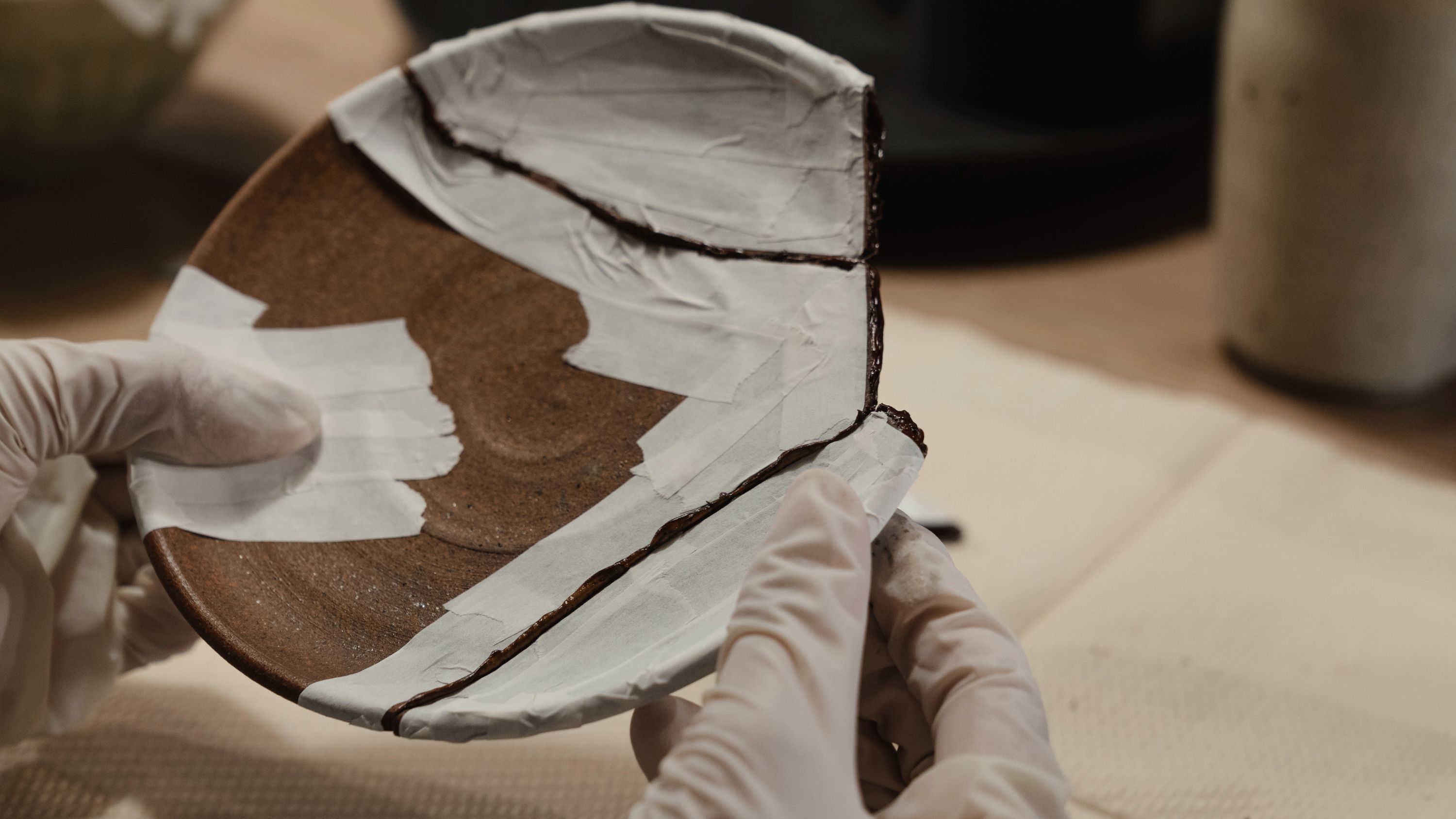
How to mend breaks: mugi urushi (part 1 of 3)
When beginning kintsugi-repair, the first question to ask is, ‘‘how is the piece damaged?’’ Is it broken, cracked, or chipped? First and foremost, accurately identifying the fractures is an art in...
Read more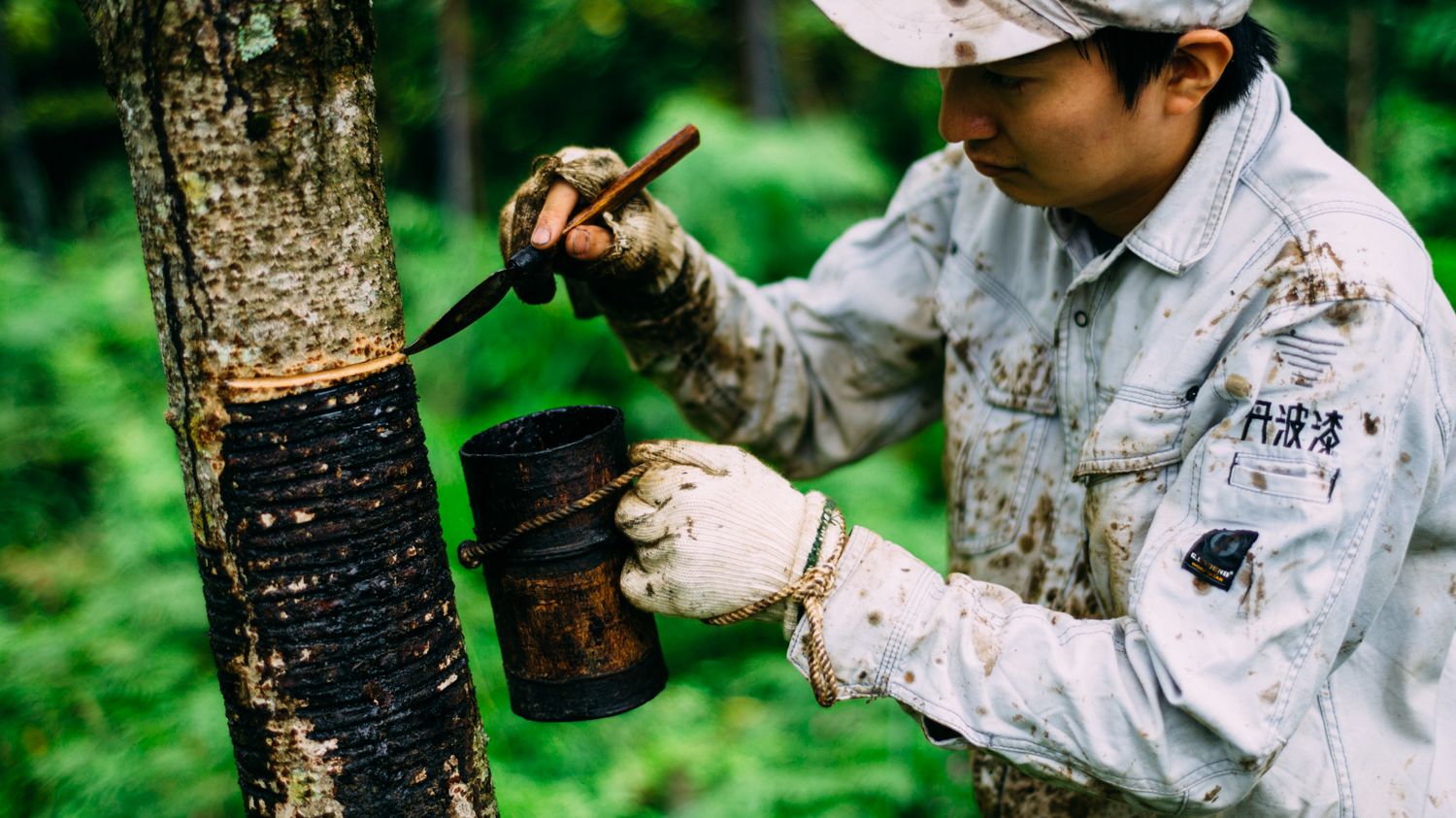
Kintsugi-repair restores broken pieces with urushi tree sap, and often finishes the repair in gold or silver powder. As a restoration practice, pieces repaired with hon-kintsugi are aesthetic, food...
Read more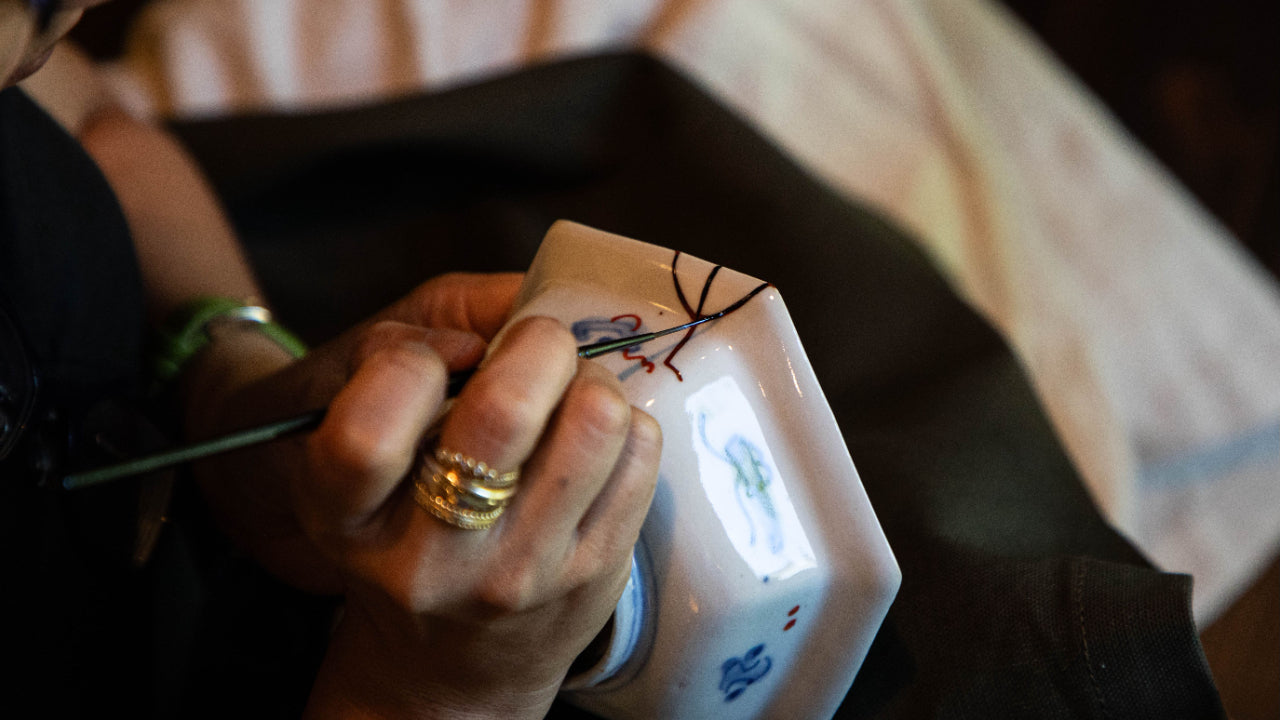
Kintsugi Apprentice Stories: Summer 2023
In Summer 2023, we welcomed our inaugural class to Kyoto for the first ever Kintsugi Apprentice Program.
Read more